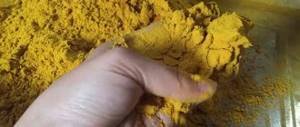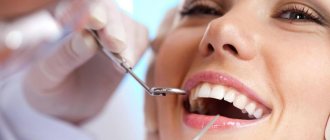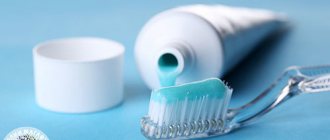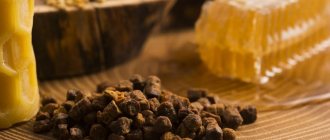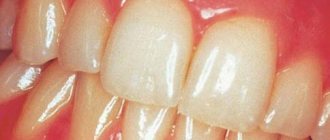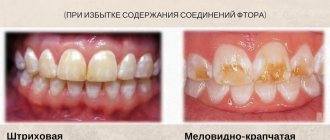Stomatitis
During this disease, the oral mucosa suffers. On the inner surface of the cheeks, on the gums, palate, on the tongue. It looks like swelling of the mucous membrane and small ulcers, which over time, in the absence of treatment or exacerbation, can merge into large ones.
There are several reasons:
- Allergic - with an attack by lymphocytes of the immune system on unidentified irritant molecules.
- Vesicular is a contagious form of stomatitis caused by RNA viruses.
- Herpetic. Another contagious form, albeit with less virulence. This form is treated with Acyclovir.
- Traumatic.
- Ulcerative.
- Catarrhal – caused by poor or complete lack of oral hygiene.
What are the benefits of this medicine for your mouth?
Due to the presence of a large number of vitamins and nutrients, sea buckthorn oil has many valuable qualities for humans.
- The positive effect of the product on the condition of the oral cavity is manifested in the following:
- relieves inflammation;
- promotes the regeneration of damaged mucous membranes;
- has a disinfecting effect, acting against harmful microbes;
- activates local immunity;
- has an enveloping effect, preventing the spread of infection;
- reduces pain and itching;
- nourishes the mucous membrane, making it immune to infections.
Sea buckthorn oil
A product obtained by squeezing sea buckthorn berries. Moreover, to obtain oil, either the whole berry or just the seed can be used - beneficial fatty acids are found in any part of it.
For medicinal purposes, cold-pressed oil is mainly used, as it is the most valuable organoleptically, since all biologically active substances are preserved in it without destruction. It is usually dark orange in color, as opposed to the yellow-orange stone fruit used more in the food industry, or the red-brown hot-pressed stone fruit, which is better suited for cosmetic purposes.
An alternative in action
The medicinal effect is reduced to frequent rinsing or lubricating the oral cavity with Lugol's or Furacilin solutions, Hexoral, Ingalipt or Stomatidin sprays, treatment with Viferon, Cholisal, Kamistad, Lidochlor gels. All these means can be varied, achieving disinfection of the mucous membrane and gradual attenuation of the process.
But they, like any medicinal form, have a significant drawback - possible contraindications, and in a very wide range, and frequent allergic reactions.
Oil preparations always act more gently than aqueous or alcoholic medicinal solutions. For sea buckthorn oil this statement is 100% true. Its unique organoleptic properties allow it to treat wounds in the mouth with surgical precision, disinfecting them and alleviating symptoms.
Compound
- Vitamin C. A vitamin that is directly involved in the metabolic processes of the body. Regulator of carbohydrate and lipid metabolism, responsible for the synthesis of steroids and nucleins. One of the best direct-acting anti-inflammatory and immune agents.
- Vitamin E. With its deficiency, a decline in all protective functions and a slowdown in tissue regeneration are inevitable.
- Vitamin K. If there is a deficiency of this vitamin, the hematopoietic functions of the body drop sharply, the membrane of produced red blood cells becomes thinner, weaker, and the number of lymphocytes increases. The vitamin also reduces the risk of hemorrhages in the mucous membranes, strengthening the walls of blood vessels.
- B vitamins. With a lack of B vitamins, the regeneration of damaged organs and tissues slows down, and all major systems become unbalanced.
- Carotene, or provitamin A. Carotene gives sea buckthorn fruits an intense yellow or orange color; it is also called a precursor of vitamin A. It is an active participant in metabolism and the healing process of any wounds.
Sea buckthorn oil is also rich in vital health regulators: triterpene and polyunsaturated acids, bioflavonoids and folic acid, microelements in the form of manganese, iron, silicon.
Healing properties
Sea buckthorn berries have long been known among folk healers and healers as a unique natural medicine. The oil made from the fruits of this tree has a universal complex effect on the body, due to which it can be successfully used to treat many diseases.
Sea buckthorn oil is used as a local medicine for wounds, burns, inflammatory processes and pustules, and internally to treat gastritis, esophagitis, impaired gastrointestinal motility, or to prevent the development of peptic ulcers.
Methods for treating stomatitis with sea buckthorn oil
Despite the generally accepted hypoallergenic nature of sea buckthorn oil, the reaction to it still needs to be checked, especially for city dwellers living in conditions where industrial emissions occur.
This is done simply: apply a smear to clean skin of the wrist and wait 10 minutes. If after removing the oil there is no redness in this area, you can use it in all forms.
- Saturate a gauze swab with sea buckthorn oil and, without exerting much effort, wipe the surface of the gums, inside the cheeks, palate and tongue. The procedure is done 4-5 times a day.
- Oil application method. Using this method of treatment, an oil-saturated gauze swab is distributed along the entire length of the dentition so that it covers both the outer side of the cheeks and the inner side.
- Rinsing the mouth with sea buckthorn oil. With this method, you need to take a full teaspoon into your mouth and forcefully drive it through your teeth for 5 minutes. You can’t take it longer, because the food enzymes contained in saliva will begin to break down sea buckthorn oil, and its medicinal value will decrease.
After the procedures, it is not recommended to eat for at least half an hour, so as not to irritate the mucous membranes and not negate the healing effect of the drug.
Contraindications
Natural sea buckthorn oil does not contain harmful impurities, therefore it is an environmentally friendly product. But despite its numerous beneficial properties, the product also has contraindications that must be taken into account when prescribing a course of treatment.
- These include:
- individual intolerance to the product;
- increased tendency to allergic reactions;
- acute diseases of the stomach, pancreas, intestines;
- disturbances in liver function;
- the presence of stones in the gall bladder.
Stomatitis can appear in a person at any age and is a very unpleasant disease. But you can quickly get rid of the unpleasant symptoms of the disease and speed up the restoration of the oral cavity with the help of natural sea buckthorn oil. The product has a number of useful properties and is widely used in dentistry for various diseases.
How to choose the right one
When purchasing sea buckthorn oil in pharmacies, check the region where the fruit is grown and where the medicine is prepared from it. They must match, otherwise the content of vitamins and biologically active substances in such oil may be reduced. The fact is that when transported over long distances, and even under inappropriate conditions, many beneficial substances in sea buckthorn oil are destroyed.
The bottle must be made of dark brown glass - the vitamin C contained in the oil is destroyed by light.
If there is a note that the product is made from selected varieties of sea buckthorn grown specifically for food and medicinal purposes, that’s generally great. Altai is famous for such varieties, where they are not only cultivated, but production itself is concentrated there.
In addition to regular pharmacies, sea buckthorn oil can be purchased in specialized herbal pharmacies with their large selection of natural preparations, healing syrups and medicinal herbs. In such pharmacies it is guaranteed to be certified and fresh.
Homemade oil
You can make sea buckthorn oil yourself. To do this, take fully ripe, selected berries of an even yellow or orange color, without dark spots or damage to the skin. The berries are washed, dried well to remove the slightest trace of water, and the juice is squeezed out of them.
After standing for a long time, up to a week, in a dark place under a lid, oil will float to the surface of the juice. This type is the most valuable; it is suitable for treating stomatitis even in young children.
The cake remaining after squeezing the juice is dried in the oven, avoiding severe overheating, much less burning. Then they grind it into flour and fill this mass with refined and sterilized olive oil when heated to 60 degrees, and leave it for a couple of weeks.
During infusion, the mixture is stirred periodically, and after 14 days, filtered. Store in the refrigerator.
Causes of the disease
As is clear from the name of the disease, a negative reaction of the body develops after contact with various allergens. Most often, allergic stomatitis occurs after contact with plant pollen or mold spores. The disease can also manifest itself against the background of:
- installation of crowns, fillings, prostheses made of low-quality materials;
- consumption of certain types of food (especially in children);
- decreased immunity;
- course of treatment with antibacterial drugs or sulfonamides;
- advanced caries;
- bleeding gums;
- inflammation of the oral cavity;
- proliferation of pathogenic microorganisms in the oral cavity.
Sometimes allergic stomatitis manifests itself as a complication of Lyme disease, systemic lupus erythematosus, aphthous stomatitis, hemorrhagic diathesis, and Stevens-Johnson syndrome.
Sea buckthorn oil should not be used in large quantities by people with individual intolerance, liver disease, pancreas and gall bladder. You should also not use the oil if you have diarrhea.
For sea buckthorn oil to be beneficial, it must be chosen correctly. If you buy at a pharmacy, you should look at the color and consistency. A homogeneous thick consistency is a sign of a good product. Real sea buckthorn oil contains at least 180 mg/% carotenoids, is certified and is made from selected varieties of sea buckthorn, which are grown in environmentally friendly areas.
The benefits of sea buckthorn oil are priceless, the most important thing is to know the contraindications and not abuse it.
Use for stomatitis in children
Children suffer from stomatitis much more often than adults. Their immune system has not yet fully developed, and there are problems with hygiene during children's games; children often put everything in their mouths.
It is precisely because the immune system is immature that it is most often recommended to use an alternative in the form of sea buckthorn oil for the treatment of childhood stomatitis - as a natural substance with a complete absence of artificial chemical components. In addition to being harmless, it also has a softening and analgesic effect.
Before treating your child's oral mucosa, ask him to rinse his mouth with warm water to remove food debris from his teeth and gums.
For wounds and ulcers, soak a cotton swab in oil and treat all affected areas with it 5-6 times a day.
If the child’s age allows him to rinse his mouth on his own, prepare him a solution with sea buckthorn oil. To do this, add 2 drops of oil to 100 ml of water, beat it all into an emulsion in a bottle with a stopper and give it to the child for intensive rinsing. The procedure is repeated every 2 hours.
Relief occurs after 2-3 procedures.
For stomatitis in infants
The risk of allergy from sea buckthorn oil is greatest in infants - due to their own undeveloped immune system. Therefore, if stomatitis occurs in an infant, then consultation with a pediatrician is mandatory!
If there is no negative reaction, you can either moisten the disc with oil and then apply it to the gums, or treat wounds and sores with a cotton swab.
Treatment
When treating inflammatory processes of the oral mucosa in children in a dental center, the following measures are taken:
- Elimination of the inflammatory process. To achieve this goal, the dentist prescribes a course of anti-inflammatory therapy. The course of treatment includes the application of dental gels, as well as rinsing the mouth with antiseptic solutions.
- Removing plaque and tartar. This procedure is carried out using ultrasonic teeth cleaning and polishing brushes. It is necessary to explain to the child that removing plaque is a painless procedure that will significantly speed up the healing process.
- Sanitation of the oral cavity. Involves treatment of caries, since carious teeth are an additional source of infection. Sanitation is necessary to prevent relapse of the inflammatory process.
- Training in correct oral hygiene. At the appointment, the dentist should tell the child how to brush their teeth correctly and explain why this is so important.
At your appointment, the specialist will recommend a course of vitamin-mineral complexes that help strengthen enamel, improve the functionality of the immune system, and normalize metabolism. In order to prevent inflammation of the oral mucosa, it is necessary to observe preventive measures. They consist not only of proper hygiene and taking vitamins. It is equally important to include foods that are healthy for teeth in your child’s diet and exclude products that can be harmful. Dairy products, green vegetables, nuts, and fresh fruits are recommended for consumption. It is better to exclude carbonated drinks and excessive amounts of sweets.
Note! At least once every six months, you need to visit a pediatric dentist for a preventive examination.
Timely treatment of gingivitis and other inflammatory pathologies of the oral cavity will prevent chronicity of the pathological process. To minimize the likelihood of inflammation, you should strengthen the immune system, promptly treat systemic diseases, and pay attention to oral hygiene. During the teething period, it is important to choose a suitable dental gel to alleviate the baby’s condition. A teether, which can be purchased at a pharmacy, will also help you survive this time.
For children during the feeding period
Sea buckthorn oil for stomatitis is also indicated for infants, but you will still have to contact your pediatrician in advance - at such an early age you may experience an allergy to natural oils.
Treatment with the drug is carried out by lubricating the areas of erosion (maximum three times a day). The procedure is carried out as follows: a cotton swab (disc) is dipped in oil, then it must be applied to the mucous membrane.
